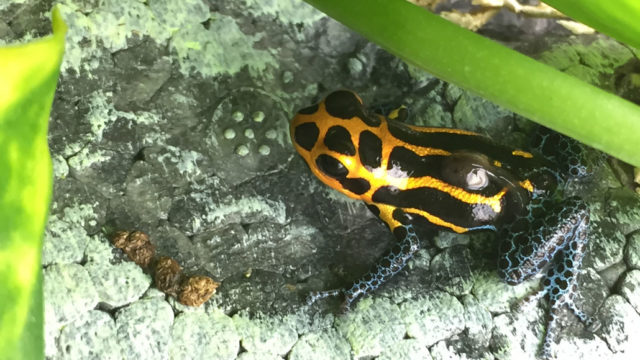MI weekly selection #341
MI weekly selection #341

Frog brain study looks for parenting clues
Some poison dart frogs take an active role in parenting their young rather than disregarding eggs once they are laid, and researchers found brain regions in males and females that could offer clues about such behavior. Scientists compared neural activity in three species of poison dart frogs that are known to care for their young and found that the preoptic area was activated in caregivers.
Device measures individual sound particles
Researchers were able to measure individual sound particles, called phonons, with a quantum device that uses nanoscale resonators cooled to ultra-low temperatures. They expect this device to allow new types of quantum sensors, transducers and storage devices for future quantum machines.
Trees share resources with nearby stumps
Researchers are learning more about the relationship among trees, seemingly dead stumps and their interconnected root systems by studying such an arrangement with kauri trees in New Zealand. A kauri stump stays alive by extracting water and nutrients from the trees’ root system, but the exact mechanisms and the evolutionary benefit of this can only be speculated on at this stage.
Lack of whole grains might cause health problems for Paleo dieters
There seems to be an association between adherence to the Paleolithic diet and high blood levels of trimethylamine N-oxide, a biomarker for heart disease. It was shhowed in a study that Paleo dieters also had lower populations of beneficial gut bacteria, and the researchers suspect the effects are due to insufficient consumption of whole grains.
Carving may be oldest ever found in eastern Asia
A rib bone carved with seven lines and colored with ochre pigments that dates back more than 100,000 years may be the oldest example of intentional carving ever discovered in eastern Asia. Researchers aren’t sure which ancient human relative carved the bone, but suspect it was not the work of Homo sapiens.